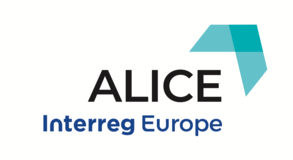On 29 January 2021, the Apulia Region held its third consultation meeting with regional stakeholders, including directors of animation studios, project managers, animators and producers. The objectives of the meeting were to update the participants on the progress of the ALICE project, and continue the ongoing discussions regarding issues holding back the development of the regional animation sector. The organizers focused on gathering suggestions for improvement in the fields of digital innovation, internationalization of SMEs and talent training.
The participants noted that, in difficult Covid-19 times, the animation sector had distinguished itself against live action, while ensuring ongoing production within a work-from-home model. The new focus on animation, supported by significant investments from the Apulia Film Commission, opens up new opportunities for the regional industry. The recent creation of production and post-production funding programs will allow Apulian producers to establish themselves as credible co-production partners. Taking an international approach was recognized as essential for the long-term financial sustainability of the sector, and more particularly for regional companies.
The main challenge now is to develop bridges between the creative and financial sides of projects. Going international requires significant organizational changes for SMEs, as well as faster access to funds which means creative and financial people must talk to each other to ensure integrated development of the industry. The Apulian Film Commission is currently revisiting the application assessment process to minimize its impact on projects’ timelines. This could involve reduced bureaucracy, more staff, the creation of a revolving fund and a separate assessment of funding requests for animated projects.
In the medium term, the industry will need more co-production funding and proper regulation to stay competitive. Keeping up with long, complex development phases and fast-changing technologies, and developing innovative products costs money. The participants welcomed in particular the idea of a general industry meeting with banks to help raise awareness of the production cycle for animated films, as well as of the co-production and market realities.
Questions regarding the protection of intellectual property were also raised during the meeting. Apulian producers need the appropriate legal tools and assistance to deal with copyrights safely. Therefore, the Region is exploring ways to train and assist small and medium companies in the protection and the purchasing of copyrights, and to offer consultancy services from experts at both national and European levels
Discussions also focused on the challenges pertaining to talent development, promotion and mobility. In particular, the Region wants to address the limited availability of qualified workforce for complex productions. For example, they could do this through the implementation of on-going learning programs and the creation of programs of excellence. Developing interregional exchanges could also help local companies optimize their human resources and respond quickly to potential shortages.
This third meeting with stakeholders allowed participants to tackle very specific problems faced by the Apulian animation industry. Through the ALICE project, the region is already working on solving some of them while designing market relevant training programs, enabling the industry to raise awareness about their realities, and making relevant suggestions to improve the existing funding and legal systems. Everyone agreed about the importance and urgency to adopt concrete solutions to improve the competitiveness of a growing sector.
© Cover picture: Memoria Interna short film.




